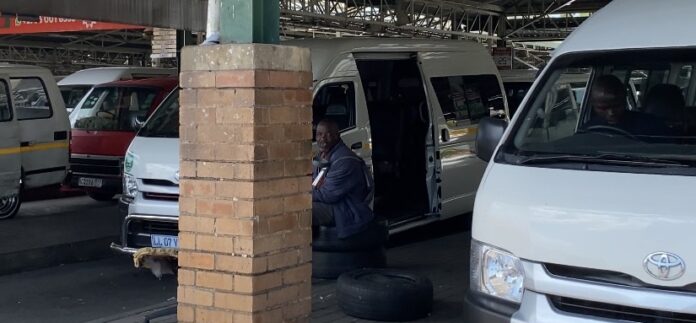World leaders are expected to arrive in the country as early as next week for the highly anticipated G20 Summit. An event that will bring with it significant road closures and traffic disruptions across the province.
The government confirmed that the road closures form part of heightened security and traffic management measures ahead of the international gathering.
The summit is expected to see an increased movement of motorcades and official delegations. And this requires strict control of major routes and access points.
However, not everyone is pleased about the impact of the closures.
Daily earnings to take a knock
Taxi drivers have voiced their frustration, saying the disruptions will hurt their daily earnings and affect their ability to provide for their families.
Thandazani Mthembu, a taxi driver from KwaNongoma in KwaZulu-Natal, said many operators are unaware of the details surrounding the summit.
“We do not know what the G20 is and how it will benefit us,” said Mthembu.
“We are always surprised by these things. Because so far, no association has informed us of that, we are in the dark.”
Mthembu operates a taxi from the Johannesburg rank to Randburg. He said his daily income targets will be difficult to meet due to the traffic restrictions.
“The problem is that the owners of the taxis will want their money. They do not care about the closure of roads. We are also here to work for our families,” he added.
Taxi bodies in support of G20
Meanwhile, the National Taxi Alliance (NTA) has called for understanding. It urges operators and commuters to view the event as an opportunity for the country’s economic growth.
“The government needs to be given a leeway to govern and market the country to boost the economy,” said NTA spokesperson Theo Malele.
“We are in full support of the G20 Summit because we have been a part and parcel of the planning. So we know how this will benefit the country.”
Malele acknowledged that the taxi industry will not directly profit from the summit. However, he is aware that the broader economic benefits could have a positive ripple effect.
“If the economy improves, we will all be happy because that will mean we will make money as the business. Taxi drivers will be given alternative routes. All we need to do is disseminate the information to the taxi drivers,” he said.
Graham Fritz, secretary of the South African National Taxi Council (SANTACO) in Gauteng, echoed Malele’s sentiments. He expressed support for the government’s preparations.
Worked with government on preparations
“Any economic assistance in our country is appreciated by us because it is for the betterment of the country,” said Fritz.
“The government has been working with us on this for over a month now. We just need more finer details of which routes we will use, and we will inform the drivers.”
Fritz acknowledged that the road closures will cause some delays. But he assured commuters and operators that they are ready to adapt.
“The road closures will affect us because there will be delays on the road. But we are prepared for that,” he said.
Some of the roads that will be affected in Joburg include: N1; M1; and N12.
Roads to be affected
Key Arterial and Urban Roads:
5th Street, Maude Street, Daisy Street;
Rivonia Road;
Grayston Drive, Katherine Street;
Whiteley Road;
Melrose Boulevard;
Athol Oaklands Road;
Oxford Road;
Glenhove Road;
Jan Smuts Avenue, Winnie Mandela Drive, Hendrick Potgieter Road;
Rand Show Road;
Nasrec Road; and
Golden Highway (Nasrec)
Visit the SW YouTube Channel for our video content



